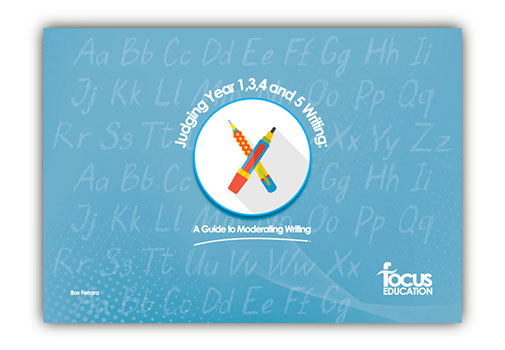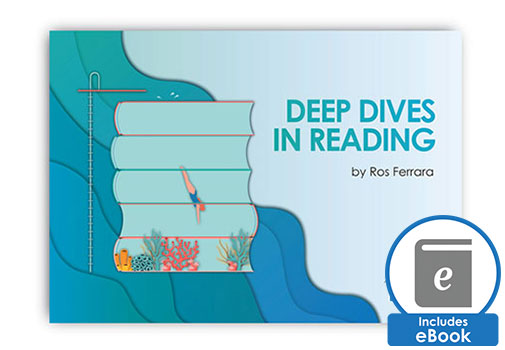
(Not Another Blog) About Phonics…
Many, me included, have plenty to say about phonics. My Twitter feed regularly features links to blogs on the subject of phonics. These cover a wide spectrum of views, from those who would advocate a phonics first and phonics only approach to reading, to those who believe that phonics should take more of a back seat.
A balanced approach to reading
In all honesty, drawing on the years that I have worked with the teaching of reading, I am convinced that we need a balanced approach to reading and writing in schools. As part of this approach, phonics is an essential strategy in learning to read and in learning to spell. There are very few schools which are not teaching phonics systematically, discretely and effectively. This has developed since the advent of Letters and Sounds and is not a new element of the 2014 curriculum.
Good phonics teaching should be engaging, interactive and purposeful in which children are actively engaged. We know that children retain their learning best when they have talked about it, investigated it and experimented with it. Phonics is no different from any other learning experience. What I do still see are too many sessions which follow the same rather dreary routine with children sitting on the carpet and working with whiteboards to write or reading sentences from an IWB.
So, if the teaching of phonics is to support the development of decoding skills for reading and segmenting for spelling, we have to make sure that children are not “boxing off” their learning and are using and applying it in reading and in writing. Too often, assessments appear to show that, within sessions or when tested discretely, children have secured certain phoneme-grapheme correspondences, yet cannot apply this knowledge in reading or writing. Unfortunately, the phonic screening check promotes the assessment of discrete, but not applied learning, Results continue to rise because Year 1 teachers have become very good at training children to “pass” the check, but standards in reading and writing at KS1 have failed to improve. Is the amount of time that year 1 teachers have to spend readying children for the check valid? Not to mention the Year 2 children who did not pass in Year 1 and have to re-take.
A phonics first and phonics only approach?
Phonics alone will not make a reader. Those who promote a phonics first and phonics only approach say that children become confused when “reading” real books and make uninformed guesses using pictures or the context or re-reading or whole-word recognition. Are these not strategies that we should be teaching children to show that reading is not about simply saying the sounds on the page, but also to understand them? Stephen Krashen’s work continues to show that the intensive teaching of phonics only does not make for better results than an approach which teaches children a range of strategies when the test is based on texts which are not solely decodable or is testing understanding.
The Reading Recovery programme
The wonderful Reading Recovery programme uses a balanced and flexible approach which includes phonics, but also these other essential reading strategies. After all, we would not feed a child only on bread to help him grow and develop; we would offer a balanced diet of all food groups. Is reading any different?
Writing and Phonics
As for writing, unfortunately English is not a phonically regular language and spelling can be tricky. There are rules and there are patterns which must be taught and learned which will help children to become accurate and aware spellers. What they also need is a range of strategies to draw on, to be able to spell a word they have not used before. They need to develop an understanding of when a word “looks right”. Spelling is a burning issue for so many schools and often the problem lies partly in children’s over-reliance on spelling phonetically.
I had the pleasure of reading with some Year 1 children last week. One of these – all three boys! – read extremely confidently and fluently. His book was a book about space travel and full of irregular words and demanding vocabulary. He commented on the content throughout and pointed out interesting information. I asked him about what he liked to read and he talked enthusiastically about his preferences and those of his brother. A real reader! However, he has had to be convinced that it is OK to decode words which have no meaning and really does not understand why you would need to do so in order to “pass” the check.
Take a balanced approach to phonics and the importance of phonics in reading and writing…
So, should we not be taking a sensible and balanced approach to phonics and the importance of phonics in reading and writing? Of course, we need to teach phonics systematically and effectively, but we also need to remember what actually makes an effective reader and writer. That is not just phonics.
Continue the conversation on the importance of phonics in reading and writing in primary schools…
If you still have questions about phonics in the primary curriculum, join me on Twitter @FocusRosf. For related resources and publications, get in touch with the Focus Education office on 01457 821 818. You can enquire about the Focus inset consultancy here.
Related publications:
Ros has over 30 years’ experience working in teaching and leadership roles in schools, both nationally and internationally, as well as leadership roles within Local Authority advisory teams.
With extensive experience in all aspects of school improvement and contexts, as well as specialisms in English and EAL, Ros has developed inspirational, creative resources and training which puts English at the heart of the curriculum.









